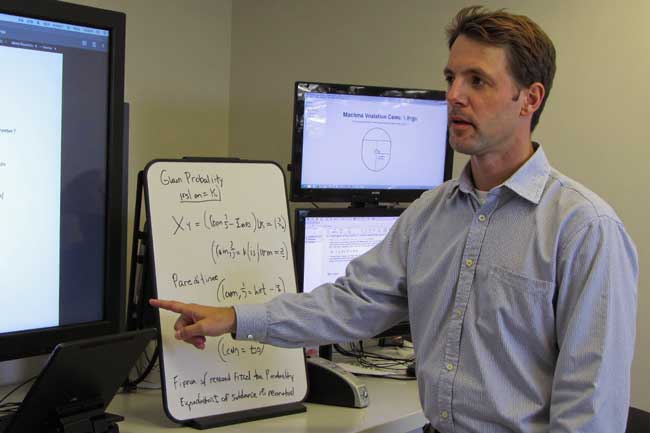Born on December 3, 1988, in Toronto, Canada, Jay Thompson’s path to becoming a slot game reviewer emerged from an unconventional blend of statistical analysis and professional poker experience.
Early Life and Education
Growing up in a family of statisticians, Jay developed an early appreciation for probability and mathematical analysis. His mother worked as an actuary, while his father taught statistics at the University of Toronto. He earned his bachelor’s degree in Statistics from McGill University in 2010, followed by a master’s in Data Science from the University of British Columbia in 2012.
Professional Poker Career
After graduation, Jay spent five years as a professional poker player, competing in major tournaments across North America and Europe. This experience gave him intimate knowledge of probability, risk management, and player psychology. He maintained a popular blog analyzing poker strategies and probability scenarios, which attracted attention from both players and gaming industry professionals.

Transition to Gaming Analysis
In 2017, Jay began consulting for online casinos, helping them optimize their game portfolios and analyze player behavior patterns. His unique combination of statistical expertise and real-world gaming experience made him particularly valuable in understanding player engagement and retention.
Academic Contributions
Before joining Spin Game Reports, Jay published several academic papers on gambling mathematics and player behavior in peer-reviewed journals. His research focused on the psychological impact of near-miss events and the relationship between game volatility and player satisfaction.
Joining Spin Game Reports
When Spin Game Reports launched in 2021, they brought Jay on board as their Head of Mathematical Analysis and Player Psychology. His role combines rigorous statistical analysis with practical insights into player experience and behavior.
Review Methodology
Jay developed the “Comprehensive Probability Analysis Framework” (CPAF), which examines not just the basic RTP of games but also the distribution of outcomes, volatility patterns, and psychological impact of bonus features. His reviews are known for their deep mathematical insights while remaining accessible to average readers.
Innovation in Analysis
He created proprietary software that simulates millions of spins to analyze game behavior under various conditions. This tool, combined with his experience in professional gaming, allows him to provide uniquely detailed insights into game mechanics and player experience.
Personal Life and Interests
Outside of work, Jay is an avid chess player and participates in competitive tournaments. He sees strong parallels between chess strategy and gambling mathematics, often incorporating these insights into his reviews. He’s also a dedicated runner, completing several marathons, and finds that long-distance running helps him think through complex analytical problems.
Living in Manchester with his partner Sarah and their two Australian Shepherds (Tesla and Newton), Jay maintains a home gym and meditation space where he starts each day with mindfulness practice before diving into game analysis.
Community Engagement
Jay regularly conducts online workshops on gambling mathematics and responsible gaming. He’s particularly passionate about teaching players to understand the mathematical principles behind games, helping them make informed decisions about their gaming activities.
Content Creation Approach
His reviews combine rigorous mathematical analysis with practical player advice. Each review includes detailed probability breakdowns, volatility analysis, and expected value calculations, presented in an understandable format for both casual players and mathematical enthusiasts.

Writing Style
Jay’s writing is characterized by its precision and clarity, making complex mathematical concepts accessible through real-world examples and practical applications. He often includes interactive elements that allow readers to explore probability concepts hands-on.
Current Projects
Jay is developing an educational series on the mathematics of gambling, aimed at helping players understand the underlying principles of slot games. He’s also working on a book about the evolution of probability theory in gaming.
Future Goals
Looking ahead, Jay aims to develop more sophisticated analytical tools for game evaluation and player education. He’s particularly interested in using machine learning to identify patterns in player behavior and game design.
Through his work at Spin Game Reports, Jay continues to bridge the gap between complex mathematical analysis and practical player experience, while promoting responsible gaming through education and understanding.
